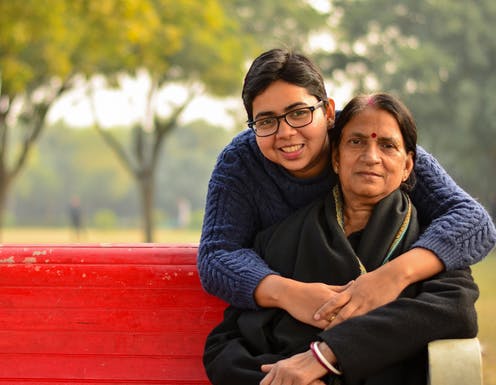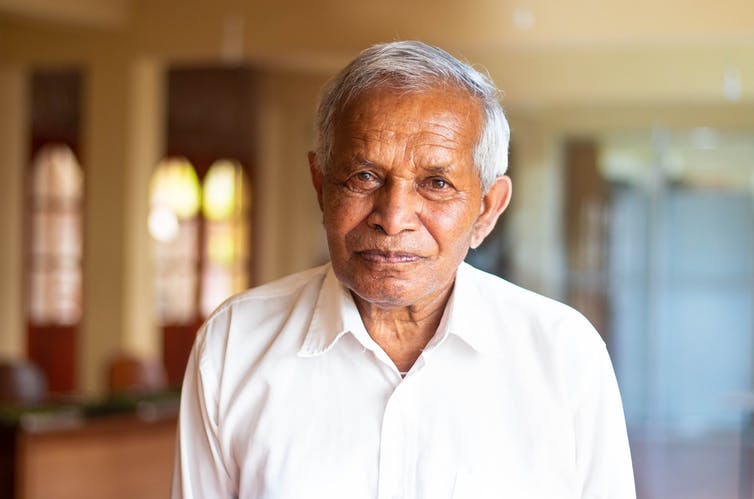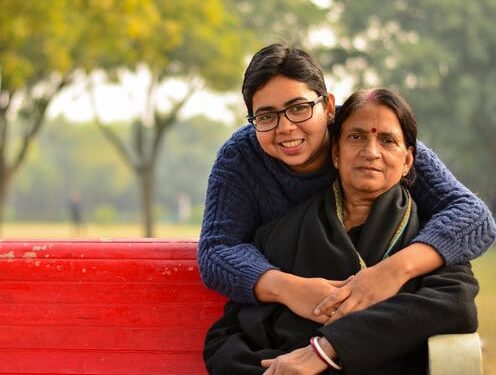
When care partners of older adults first encounter symptoms of dementia, many assume the symptoms are a normal part of aging. This lack of knowledge needs to be addressed to facilitate the first step in seeking dementia care.
Things can get even more complex for care partners living on the margins of mainstream Canadian (English and French) health-care services. As a first-generation South Asian in Canada and a doctoral student engaged in dementia-related research, I still struggle with translating and explaining what dementia means to my parents since my grandmother’s diagnosis.
South Asians comprise what Statistics Canada reports is the country’s largest “visible minority group,” at 5.6 per cent of the population. That means South Asians also make up a significant portion of the 747,000 Canadians living with Alzheimer’s or other dementia.
South Asians — people who are either born in or who can trace their ancestry to South Asia, including India, Pakistan, Bangladesh, Sri Lanka, Bhutan, Nepal and the Maldives — are an ethnically diverse group with socio-cultural norms that influence their experience of living with dementia. They may also encounter specific barriers to care including language, perceived stigma regarding dementia, lack of knowledge about available services, and hesitancy to use those services.
The process of getting care for people living with dementia can be broadly divided into three stages: recognizing the symptoms, seeking a diagnosis and using various services to access the care needed to maintain quality of life.
Table of Contents
Recognizing symptoms

(Pixabay)
The first step of recognizing symptoms is in itself a significant barrier. In a study conducted in the United Kingdom, most South Asian people living with dementia and their care partners acknowledged their lack of awareness and knowledge of dementia. They did not know the signs and symptoms of dementia before the diagnosis.
The study also found beliefs play a significant role in how the symptoms of dementia are perceived. These include associating dementia with a punishment by God for prior sins or dementia as a medium through which the connection with God is deepened.
An abundance of information about dementia is available from organizations across Canada, but limited information is available in multiple languages. While almost all (93 per cent) South Asians in Canada can carry on a conversation in English or French, 46 per cent do not use English or French at home.
Access to information in multiple languages that goes beyond the basic definition of dementia and its symptoms, and that includes information on local resources, could help raise awareness and encourage people to seek diagnosis.
Seeking diagnosis
There are various steps before receiving the diagnosis of dementia. These include a visit to a family physician, referral to specialists, and physical and mental tests.
Navigating the health-care system can be a daunting experience, especially if the individual lives with dementia and has a language barrier. The multiple visits to a doctor’s office may require a family member who can speak English to help with translation. The same individual may not be available for each visit, disrupting communication.

(Shutterstock)
The experience of receiving a diagnosis is emotionally draining and challenging. It falls on the family member to disclose it to their loved ones as a translator, which causes emotional stress for both parties.
Another issue is describing dementia in a language aside from English, as not every language may have a word for dementia.
Services such as having translators present, better policies to provide financial security for care partners who have to take multiple days off from employment, physicians having an understanding of the socio-cultural norms and the perception of dementia within the community may be a helpful starting point to make the experience of seeking and receiving dementia more inclusive to the South Asian community.
Access to services
After diagnosis, access to appropriate services is crucial to maintain the quality of life for people living with dementia and their care partner. Across Canada, multiple organizations provide such services.
However, most of these services are offered in English or French and embedded in western culture. Social and recreational services often include bingo, line dancing and discussing western art and literature, which may not be inviting or appropriate to a person living with dementia from the South Asian community.
Support groups for care partners may be a challenge due to the cultural differences in providing care for the elderly. In western culture, a move to long-term care is often the final stage for care partners to ensure their loved ones are safe and cared for.
This is a difficult conversation in South Asian communities where filial piety plays a significant role, and long-term care homes can be viewed negatively. The financial responsibility associated with long-term care may also be a factor for some families. In this way, home care becomes an integral part of dementia care in the South Asian community.
To ensure a comfortable stay within the community, services need to be more culturally inclusive in terms of content and structure of the services, the language of delivery and culturally appropriate advertisement of the available services.
To help improve the lives of South Asian Canadians living with dementia and their care partners, it is time we take steps to ensure Canada’s mandate for diversity and inclusivity are reflected within our health-care system.
![]()
Navjot Gill does not work for, consult, own shares in or receive funding from any company or organisation that would benefit from this article, and has disclosed no relevant affiliations beyond their academic appointment.






























